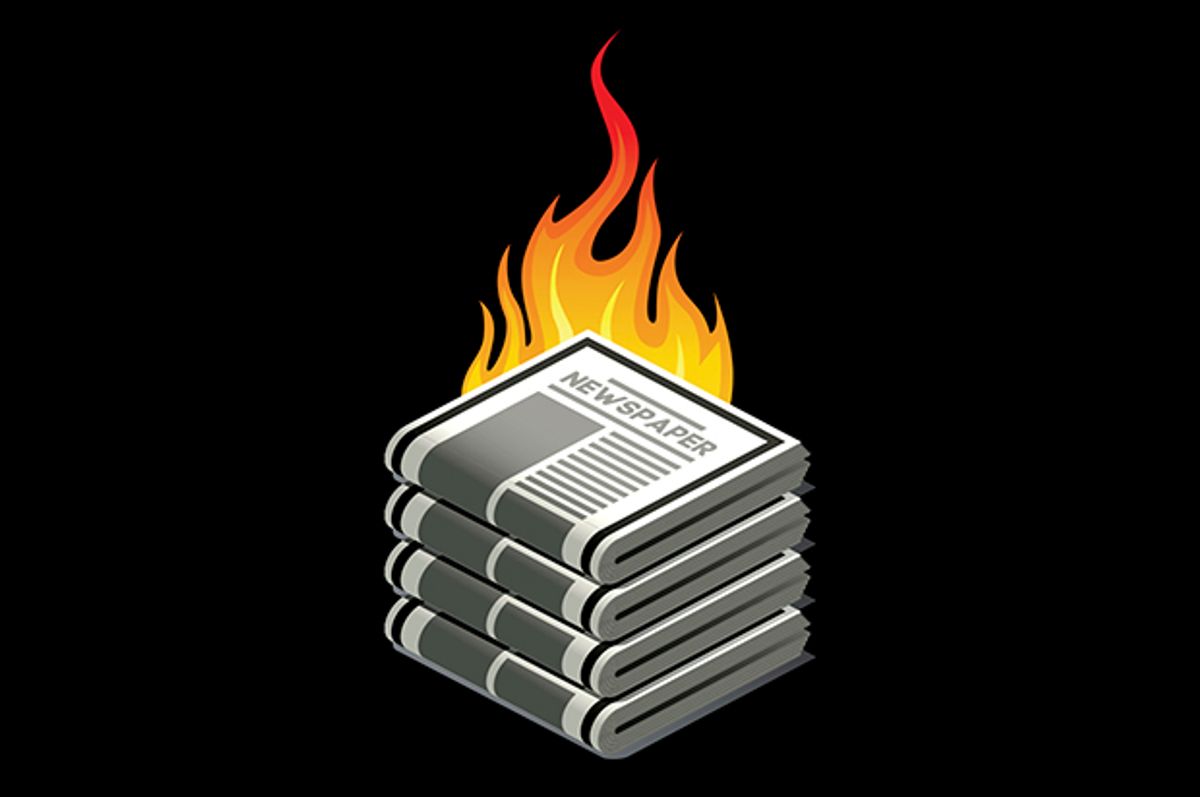Newspapers around the country are banding together to make a bold political argument: Antitrust laws should not apply to us when it comes to fighting Facebook and Google.
"Google and Facebook dominate web traffic and online ad income," writes David Chavern, president and chief executive of the News Media Alliance, in an editorial for The Wall Street Journal."Together, they account for more than 70% of the $73 billion spent each year on digital advertising, and they eat up most of the growth. Nearly 80% of all online referral traffic comes from Google and Facebook. This is an immensely profitable business."
Chavern adds, "The net income of Google’s parent company, Alphabet, was $19 billion last year. Facebook’s was $10 billion."
This is why news media outlets, from The Washington Post and The New York Times to online sites, are asking federal lawmakers for permission to engage in collective negotiation with Facebook and Google, according to a report by CNBC. While ad revenue for newspapers has fallen from $50 billion in 2006 to $18 billion in 2016, Facebook and Google are profiting from 70 percent of the $73 billion digital advertising industry in the United States.
It's tough to determine whether the news outlets have a point here. On the one hand, it is problematic for any two companies to have as much control over a single industry as Facebook and Google do over digital advertising — they are essentially a duopoly. In addition, given Facebook's recent problems with combatting fake news, there is a case to be made that reputable news outlets need to be able to hold distributors like Facebook accountable.
At the same time, news media outlets need to be careful that working together on this one occasion doesn't become a pattern. Reporters since the 1970s have already commented on how individual members of the media can develop a pack mentality. The last thing we need now is an actual pack.

Shares